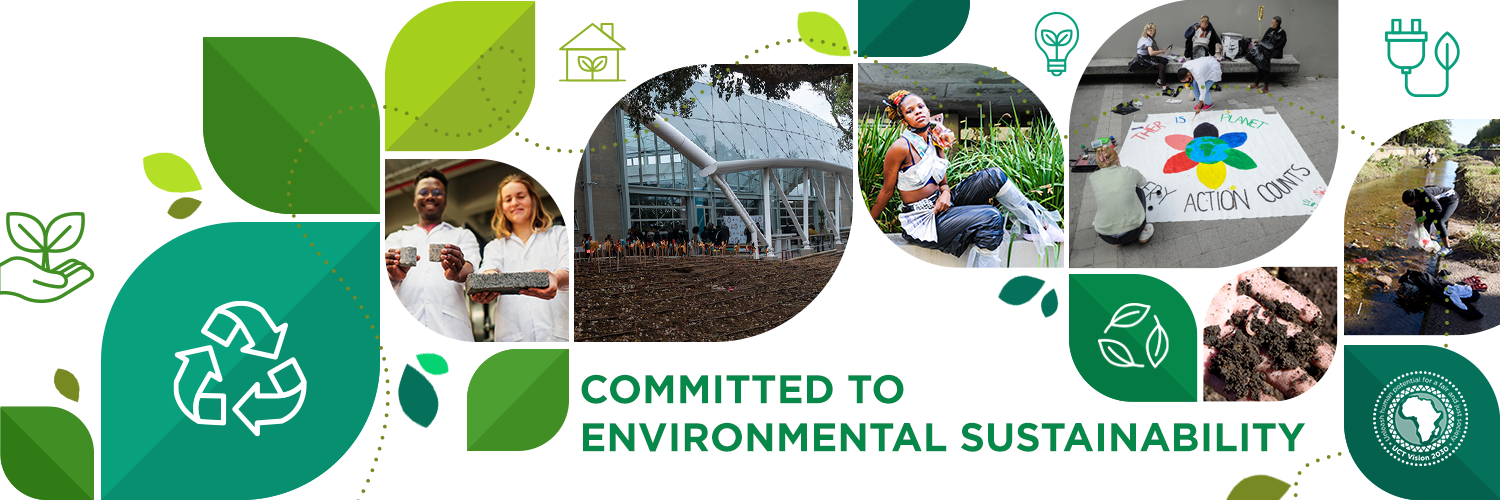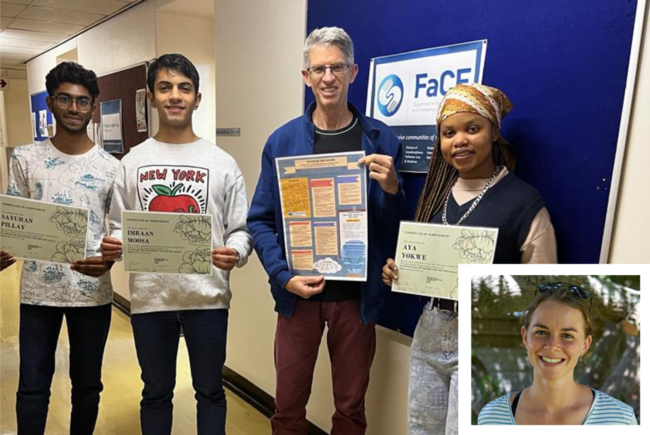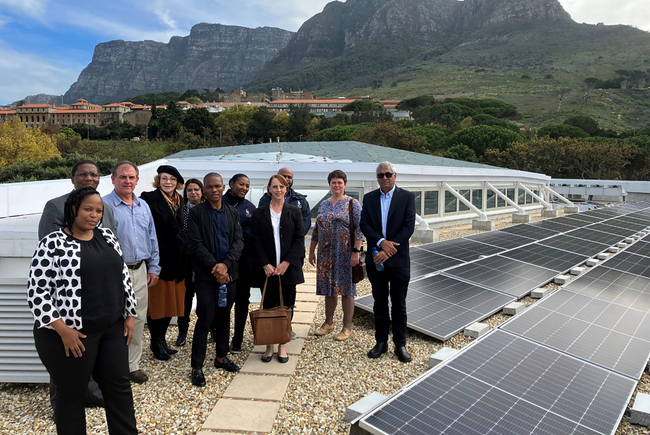UCT ranks 9th in the world for SDG 6: clean water and sanitation
02 June 2023 | Story Staff writer. Photo Lerato Maduna. Read time 4 min.
The University of Cape Town (UCT) has been ranked 9th for clean water and sanitation, while also performing well in three other United Nations Sustainable Development Goals (UN SDGs). This is according to the annual list published by Times Higher Education (THE).
The THE Impact Rankings measure the success of universities in delivering the UN SDGs. Universities can choose to enter some or all of the 17 goals, and UCT chose to participate in nine.
Clean water and sanitation (Goal 6), a first-time submission, was ranked in the top 10 in the world at 9th position. A further three areas were placed within the top 100:
- no poverty (Goal 1) at 51st
- gender equality (Goal 5) at 47th
- partnerships for the goals (Goal 17) tied at 76th.
The remaining five areas all ranked within the top 200.
“We are fast running out of time to achieve the targets set out in the Sustainable Development Goals by 2030, particularly on the African continent, which is at the sharp end of these challenges,” said Vice-Chancellor (Interim) Emeritus Professor Daya Reddy.
“The Impact Ranking results demonstrate UCT’s commitment to contribute towards addressing the continent’s grand challenges.”
“It is more important than ever for institutions of higher education to pursue the agenda through collaborative research of high quality, while also educating the next generation of leaders and having them set an example on their own campuses. UCT’s Vision 2030 commits the university to ‘Unleash human potential to create a fair and just society’. This vision, we feel, encapsulates the mission of the UN SDGs and the African Union Agenda 2063, the latter of which importantly provides continent-specific goals. The Impact Ranking results demonstrate UCT’s commitment to contribute towards addressing the continent’s grand challenges.”
This is the third year that UCT has participated in these relatively new rankings (introduced as a pilot in 2019).
UCT submitted information for nine SDGs this year, of which four were ranked among the top 100 globally:
- SDG 1 – no poverty: 51st
- SDG 3 – good health and well-being: 101–200 band
- SDG 5 – gender equality: 47th
- SDG 6 – clean water and sanitation: 9th
- SDG 8 – decent work and economic growth: 101–200 band
- SDG 10 – reduced inequalities: 101–200 band
- SDG 11 – sustainable cities and communities: 101–200 band
- SDG 16 – peace, justice and strong institutions: 101–200 band
- SDG 17 – partnerships for the goals: 76th (tied)
UCT was placed in the 101–200 band in the overall global ranking.
“Placing 9th in the world for SDG 6 focused on clean water and sanitation is an achievement of which we are particularly proud,” said Professor Sue Harrison, the Deputy Vice-Chancellor for Research and Internationalisation. “Water scarcity is an increasing threat to health and well-being on the African continent, particularly in urban environments. Further, its scarcity constrains developments in both industry and agriculture, demanding effective re-use of fit-for-purpose quality water. UCT’s Future Water Institute produces impactful research in this field by pulling together researchers across disciplines, and from all UCT’s faculties, to increase knowledge and understanding, and to produce potential solutions, collaborating closely with communities, policy makers and industry.”
Methodology
To produce their impact rankings, THE uses indicators in four broad areas:
- Research: universities create knowledge to address the world’s problems and help to deliver the SDGs.
- Stewardship: universities act as stewards of their resources, including physical resources, employees, faculty and students. This is a key factor in delivering the SDGs.
- Outreach: the work that universities do with their local, regional, national and international communities is another way that they can have an impact on sustainability.
- Teaching: plays a critical role in ensuring that there are enough skilled practitioners to deliver on the SDGs and in making sure that alumni take forward the key lessons of sustainability into their future careers.
Each university’s total score in a given year is determined by its combined performance in its top three SDGs (each counting 26%) and SDG 17 (counting 22%). The score for the overall ranking is an average of the last two year’s total scores.
View the complete 2023 THE Impact Rankings.
Read about the methodology of the 2023 THE Impact Rankings.
 This work is licensed under a Creative Commons Attribution-NoDerivatives 4.0 International License.
This work is licensed under a Creative Commons Attribution-NoDerivatives 4.0 International License.
Please view the republishing articles page for more information.

Committed to Environmental Sustainability
The University of Cape Town’s (UCT) Vision 2030 strategy’s goal is to unleash human potential in pursuing a just and equitable society. This vision rests on three fundamental pillars: sustainability, excellence, and transformation. In line with this strategy, the university has developed different initiatives, including a sustainability strategy, to provide direction for UCT’s environmental sustainability. This strengthens the university’s ambitions of being a net-zero carbon/energy, water, and waste-to-landfill campus by or before 2050.
UCT Sustainability and the SDGs 2022
UCT is committed to addressing the most critical problems facing the continent and the rest of the world. This report tracks the progress UCT is making towards the United Nation’s Sustainable Development Goals and the African Union Agenda 2063.
Download the PDF version | Read the full report:

The University of Cape Town’s (UCT) Faculty of Health Sciences (FHS) took part in their first scorecard for the Planetary Health Report Card (PHRC), a global student-led initiative to promote education about planetary health and environmentally sustainable healthcare in health science campuses
31 May 2023 - 4 min read
“We learnt some valuable lessons during [COVID-19] lockdown that we will take into the future, many of them contributing to more efficient and environmentally sustainable digital methods for doing certain things.”
– Manfred Braune, the director for environmental sustainability at UCT





























